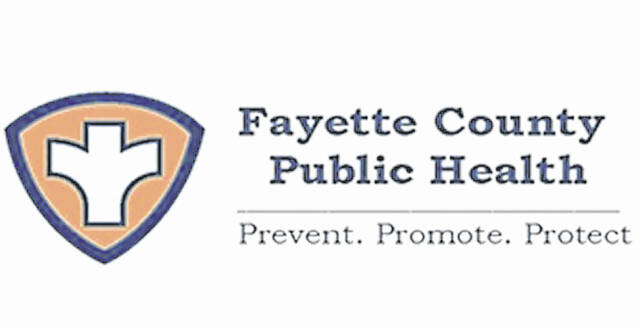
With the number of people testing for COVID-19 increasing due to holiday gatherings, the staff at Fayette County Public Health would like to remind you that if you have tested because you have symptoms of COVID-19, you should stay home until you receive the results of that test.
If you are positive, you should follow isolation procedures as outlined below and your close contacts should follow quarantine procedures. Positive individuals who will need a letter to go back to work or school are encouraged to complete the survey at faycohd.org for faster processing.
Isolation & Quarantine
Isolation is used to separate people infected with COVID-19 from those who are not infected. You isolate yourself when you have been infected with the virus, even if you don’t have symptoms.
People who are in isolation should stay home until it’s safe for them to be around others. At home, anyone sick or infected should separate from others, stay in a specific “sick room” or area, and use a separate bathroom (if available).
Quarantine is used to keep someone who might have been exposed to COVID-19 away from others. Quarantine helps prevent spread of disease that can occur before a person knows they are sick or if they are infected with the virus without feeling symptoms. People in quarantine should stay home, separate themselves from others, monitor their health, and follow directions from their state or local health department.
You quarantine when you might have been exposed to the virus and may or may not have been infected.
Q. I tested positive for COVID-19. What should I do now?
A. If you are sick or if you have tested positive for COVID‐19 without symptoms:
o Stay home and stay away from others, even in your own home.
o Stay home until after at least 10 days since symptoms first appeared (or a positive test result) and at least 24 hours with no fever without fever‐reducing medication and symptoms have improved.
o If you live with others, stay in a specific “sick room” or area and away from other people or animals, including pets, if at all possible. Use a separate bathroom, if available.
Q. What is a close contact?
A. Someone who was less than six feet away from an infected person (laboratory-confirmed or a clinical diagnosis) for a cumulative total of 15 minutes or more over a 24-hour period. For example, three individual five-minute exposures for a total of 15 minutes. Close contacts of an ill person are typically:
– individuals living in the same home,
– intimate partners,
– individuals providing home care for an ill person without using recommended precautions,
– individuals who have had close contact (within 6 feet of the ill person) for a prolonged period of time (at least 15 minutes).
– individuals who have had direct physical contact with an infected individual (touched, hugged or kissed them).
– individuals who have shared eating or drinking utensils with a close contact.
Q: Who needs to quarantine?
A: Anyone who has been in close contact with someone who has COVID-19 should quarantine.
Q: What do I need to do if I am in quarantine?
A: Stay home for 10 days after your last contact with a person who has COVID-19 (or seven days with a negative test on day five or later). Watch for fever (100.4 degrees F or higher), cough, shortness of breath, or other symptoms of COVID-19. If possible, stay away from others, especially people who are at higher risk for getting very sick from COVID-19.
Q: When should I start and end quarantine?
A: Anyone who has had close contact with someone with COVID-19 should quarantine for 10 days after their last exposure to that person (or seven days with a negative test on day five or later), except if they meet the following conditions:
– Someone who has been fully vaccinated and shows no symptoms of COVID-19 does not need to quarantine. However, fully vaccinated close contacts should:
Wear a mask indoors in public for 14 days following exposure or until a negative test result.
Get tested 5-7 days after close contact with someone with suspected or confirmed COVID-19.
Get tested and isolated immediately if experiencing COVID-19 symptoms.
Self-tests are one of several options for testing for the virus that causes COVID-19 and may be more convenient than laboratory-based tests and point-of-care tests. Ask your healthcare provider or your local health department if you need help interpreting your test results.
– Someone who tested positive for COVID-19 with a viral test within the previous 90 days and has subsequently recovered and remains without COVID-19 symptoms does not need to quarantine. However, close contacts with prior COVID-19 infection in the previous 90 days should:
Wear a mask indoors in public for 14 days after exposure.
Monitor for COVID-19 symptoms and isolate immediately if symptoms develop.
Consult with a healthcare professional for testing recommendations if new symptoms develop.
Q: What if I ended up having a repeat close contact with the person who is sick during my quarantine? What if I have contact with someone else sick with COVID-19? Do I need to restart my quarantine?
A: Yes. You will have to restart your quarantine from the last day you had close contact with anyone who has COVID-19.
Q: What if I live with someone who has COVID-19 and cannot avoid continued close contact?
A: You should avoid contact with others outside the home while the person is sick. If you cannot, your quarantine starts after the person who has COVID-19 meets the criteria to end home isolation.


